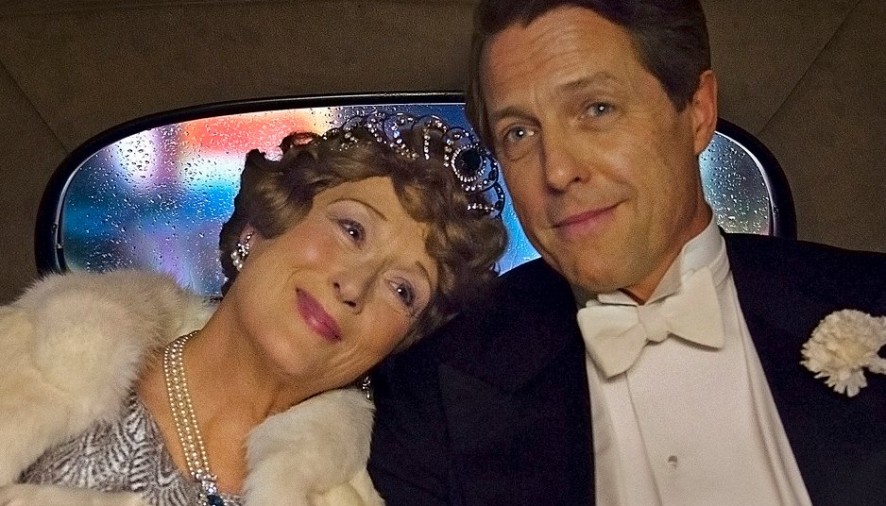The world couldn’t seem to get enough of Florence Foster Jenkins, a wealthy New York socialite often referred to over the years as ‘the worst opera singer in the world’. Even today, she remains unforgotten, with two films inspired by her life story appearing over the past two years; first the 2015 French film, Marguerite, and now – this year – the latest film from Stephen Frears (director of The Queen and Philomena), Florence Foster Jenkins. Starring Meryl Streep in the title role, the film is endearingly funny and simultaneously tragic. It is, of course, this cocktail of emotions that makes it such worthy viewing.
Set in New York City at the height of the Second World War, we meet Jenkins (Streep) and her charming and loyal actor husband, St. Clair Bayfield, played by Hugh Grant. Their marriage is one of mixed devotion, Bayfield (Grant) portrayed as an affectionate spouse supportive of Jenkins’ ambitions. Incidentally, their marriage remains strictly platonic, as Jenkins is riddled with syphilis. For these reasons, Bayfield keeps a mistress (played by Rebecca Ferguson) going by the name of Kathleen at the couple’s spare apartment. It is Jenkins’ desire, having been a patron of the arts all her life, to fulfil her dreams of becoming a great opera singer; Bayfield is supportive of this, despite the emerging truth of Jenkins’ ineptitude and lack of vocal prowess.

This makes for a chorus of laughter, both on and off screen, and is guaranteed to lift the moods of the audience, just as Jenkins’ ‘infamous’ concert at Carnegie Hall in 1944 was guaranteed to lift the moods of troops and their loved ones in a time of war. As far as performances go, Streep draws us to the character with her usual effortlessness, only this time her portrayal is more light-hearted than some of her austere portrayals of historical figures in recent years (such as Margaret Thatcher in The Iron Lady and Emmeline Pankhurst in last year’s Suffragette), whilst maintaining an element of tragedy to a woman who fought to achieve her dreams, despite her crippling illness. Grant gives an unusually mature and admirable performance, perhaps finally finding himself as an actor in this period of his life, having survived his more trivial days as a romcom heartthrob. There is then Simon Helberg in his role as Cosme McMoon, who serves as Jenkins’ bemused accompanying pianist. His stifled giggles are contagious.
What remains so admirable about this film, besides its near-perfect production, is its bitter sweetness. Whilst it is undisputable that Jenkins’ voice was not of a professional standard, the vicious efforts made by her husband to shield her from the world’s opinion of her, so as to maintain an illusion of critical success, are hilarious in their desperation and heart-warming in what is, ultimately, a genuine measure of his love for her. What’s more, her illness reminds us that everyone has a struggle in their lives and we must not be too quick to ridicule others when they open their hearts to us, no matter how dreadful they sound.
George Jackson
Image courtesy of Nick Wall Photography

